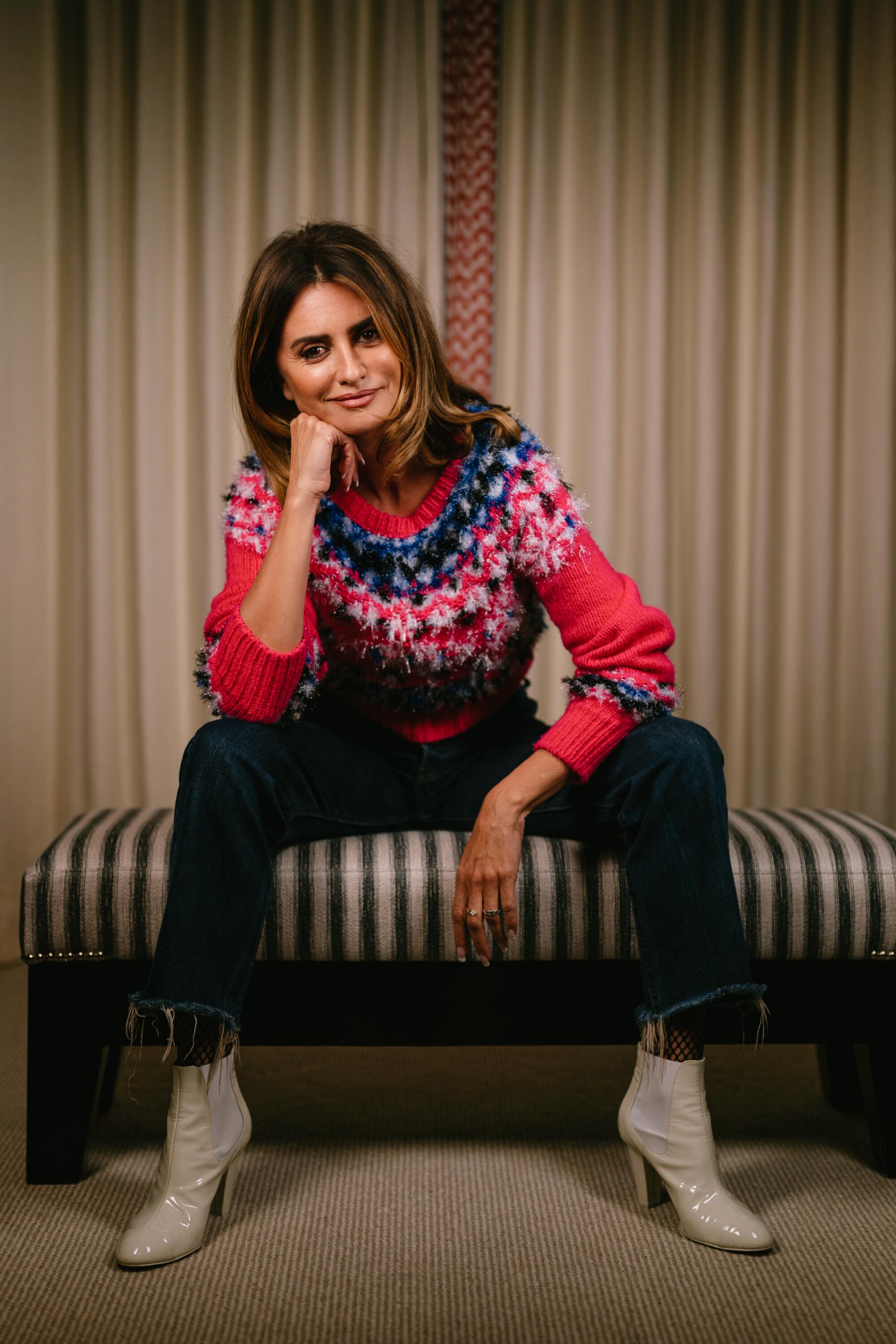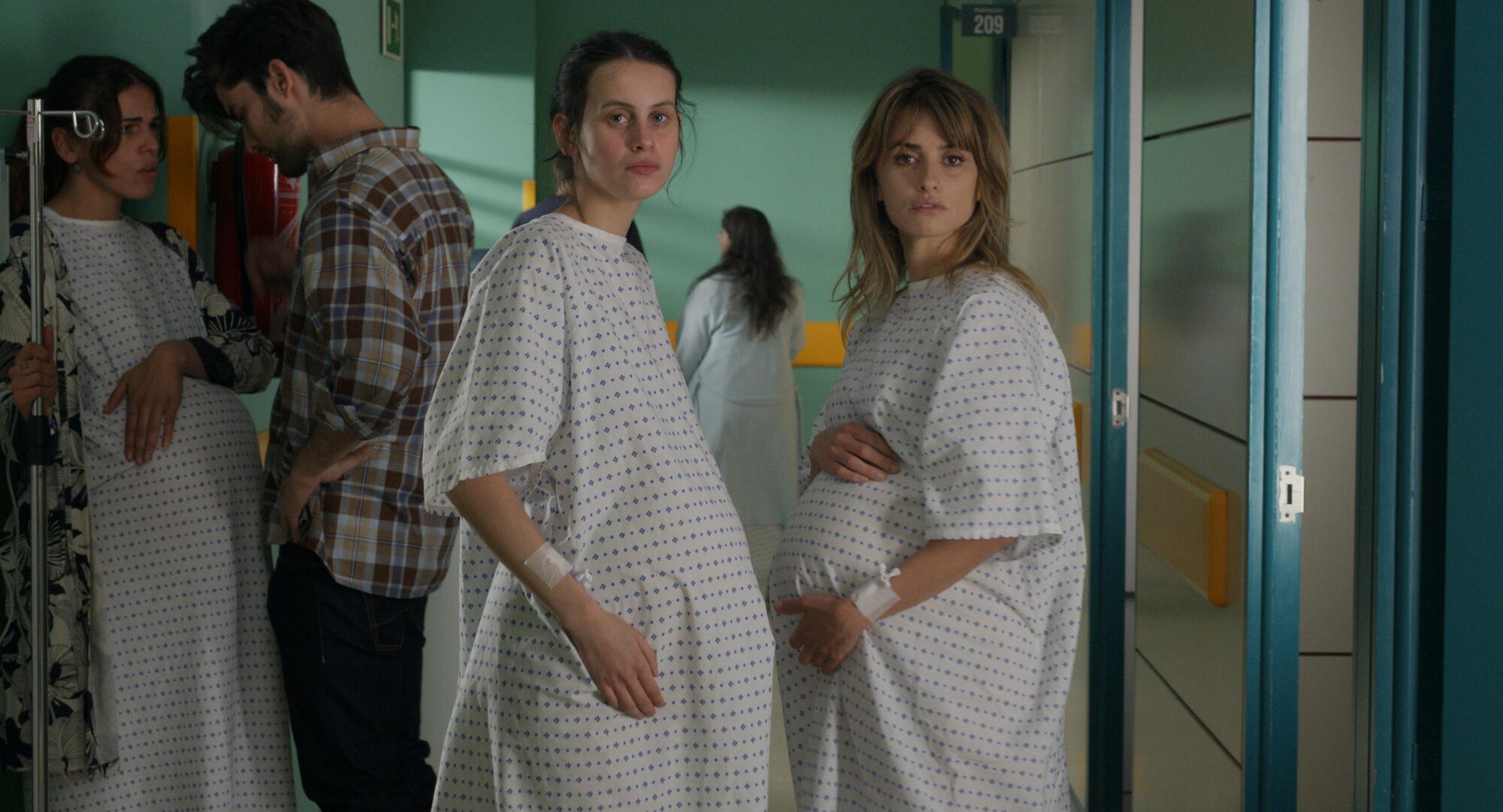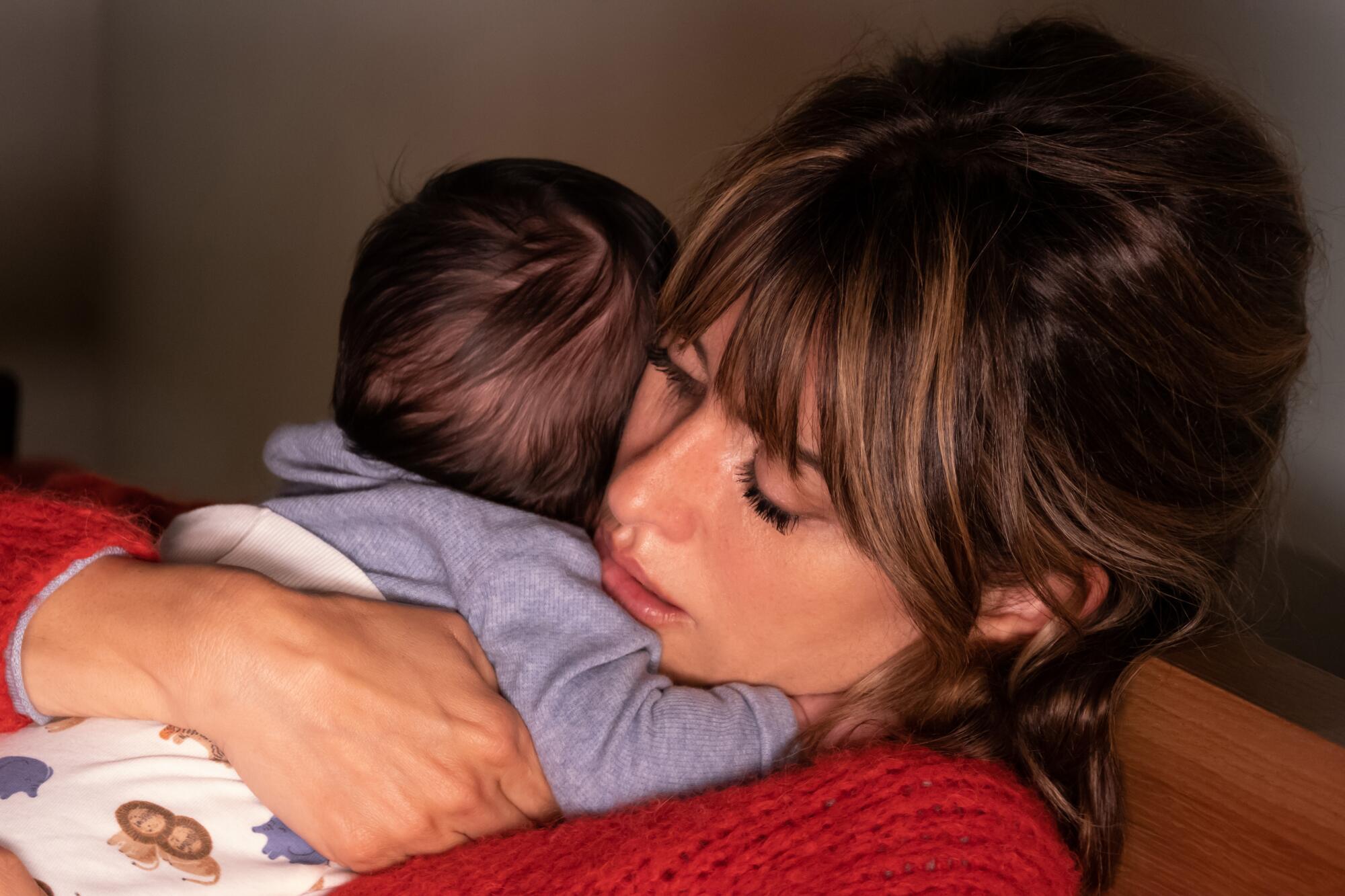
It was about 20 years ago, and Penélope Cruz was hanging out with her friend and Spanish countryman Pedro Almodóvar in New York. Almodóvar, who had already directed Cruz in more than one film, was going on about a story of two mothers who give birth on the same day, an older woman eager to raise a child and a younger woman with less enthusiasm. Cruz was keen to do the film — she’s always keen to work with Almodóvar — but the prolific filmmaker let the idea pass as he moved on to his next project. “Over the years I was wondering what he was going to do with it,” Cruz says by phone from Madrid.
Fast-forward to 2020, the year of the first COVID-19 lockdown. There wasn’t much to celebrate, but for Cruz, the news was good: Almodóvar, afforded time to write during the pandemic, called and told her he was working on the screenplay for what would become “Parallel Mothers.” And he wanted Cruz to play the role of Janis, the photographer and single mother with a secret she’d rather not disclose.
“When he sent me the script, I was blown away,” Cruz says. “It’s one of the most demanding, difficult characters that I’ve played. But I say that with a smile, of course, because I feel very lucky that he has so much trust in me.”
At this point, that trust has been more than earned.


Starting with “Live Flesh” in 1997, Cruz has worked with Almodóvar on seven films. She’s the closest thing to a go-to star the filmmaker has. With the exception of the rare 2013 misfire “I’m So Excited,” a sex farce aboard an airplane, they’re all gems, encompassing different periods of the actor’s career, from up-and-comer to Oscar-winning star (she took the supporting actress award for her work in Woody Allen’s 2008 film “Vicky Cristina Barcelona”).
Almodóvar, who won his Oscar for writing 2002’s “Talk to Her,“ is probably the greatest melodrama master since Douglas Sirk, and Cruz knows exactly how to work at his emotional pitch. She knows the outré material doesn’t require her to overdo it, and she stays on an even keel with the extremes at play throughout most of his scripts. Her performances provide ballast, but they do much more than that. They remind you of Almodóvar’s essential humanity.
Cruz can’t get enough.
“He doesn’t judge the characters, no matter how twisted they can be,” she says. “It’s a blessing to have that when we are acting, because we cannot judge them either.”
Like other Almodóvar films, including “Talk to Her,“ “Parallel Mothers” focuses on a moral dilemma and presents the viewer with a bad deed done in the name of love. “Everything that happens to her from the beginning of the film is really challenging, with situations that are not very common in life,” Cruz says. “She’s experiencing this huge threat that unfortunately a lot of people experience in different situations related to motherhood. But in her case it is very peculiar and particular.”

This is not the first time star and director have collaborated to tell a story about motherhood. In 1999’s “All About My Mother,” which won the Academy Award for foreign language film, Cruz played a pregnant, HIV-positive nun. In “Volver” (2006), for which Cruz earned her first Oscar nomination, her character, Raimunda, is estranged from her mother, who may or may not be dead. Motherhood is both holy and thorny in Almodóvar’s world, a deeply rewarding but complex proposition. “He always saw a lot of maternal instinct in me,” Cruz says.
This time, however, there was a difference. Cruz now has a son and a daughter with her husband, Javier Bardem. She is living motherhood. “As actors, we don’t need to go through every experience our characters go through,” she says. “But now it’s more on a cellular level. Every cell in my body immediately understands that fear or that worry or that happiness of being a mother.”
Cruz has already won lead actress awards from the Los Angeles Film Critics Assn. and the Venice Film Festival; an Oscar nomination seems likely. She says she doesn’t think much about such things, with some exceptions. The Venice award last September was special, because she first came to the festival back in 1992 with her first film, “Jamón, Jamón.” When she found out she won, she cried uncontrollably. “My daughter was looking at me very serious, wondering, ‘Mom, why are you crying? They’re giving you an award.’ To win there with a movie with Pedro was an incredible experience for me.”
Cruz still does the occasional Hollywood movie, like the recent action thriller “The 355,” in which she plays a Colombian psychologist/spy. But she shines brightest in Spanish films. She actually had two of them at Venice: “Parallel Mothers” and the showbiz comedy “Official Competition,” in which she stars with Antonio Banderas. It’s due out later this year.
For now, she can savor her latest work with her favorite collaborator. And look forward to the next one.
“I never say no to him,” she says.

More to Read
From the Oscars to the Emmys.
Get the Envelope newsletter for exclusive awards season coverage, behind-the-scenes stories from the Envelope podcast and columnist Glenn Whipp’s must-read analysis.
You may occasionally receive promotional content from the Los Angeles Times.









